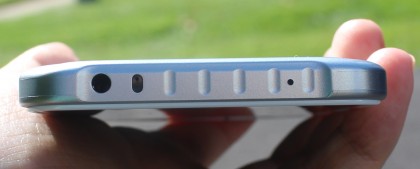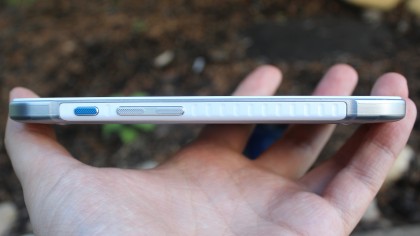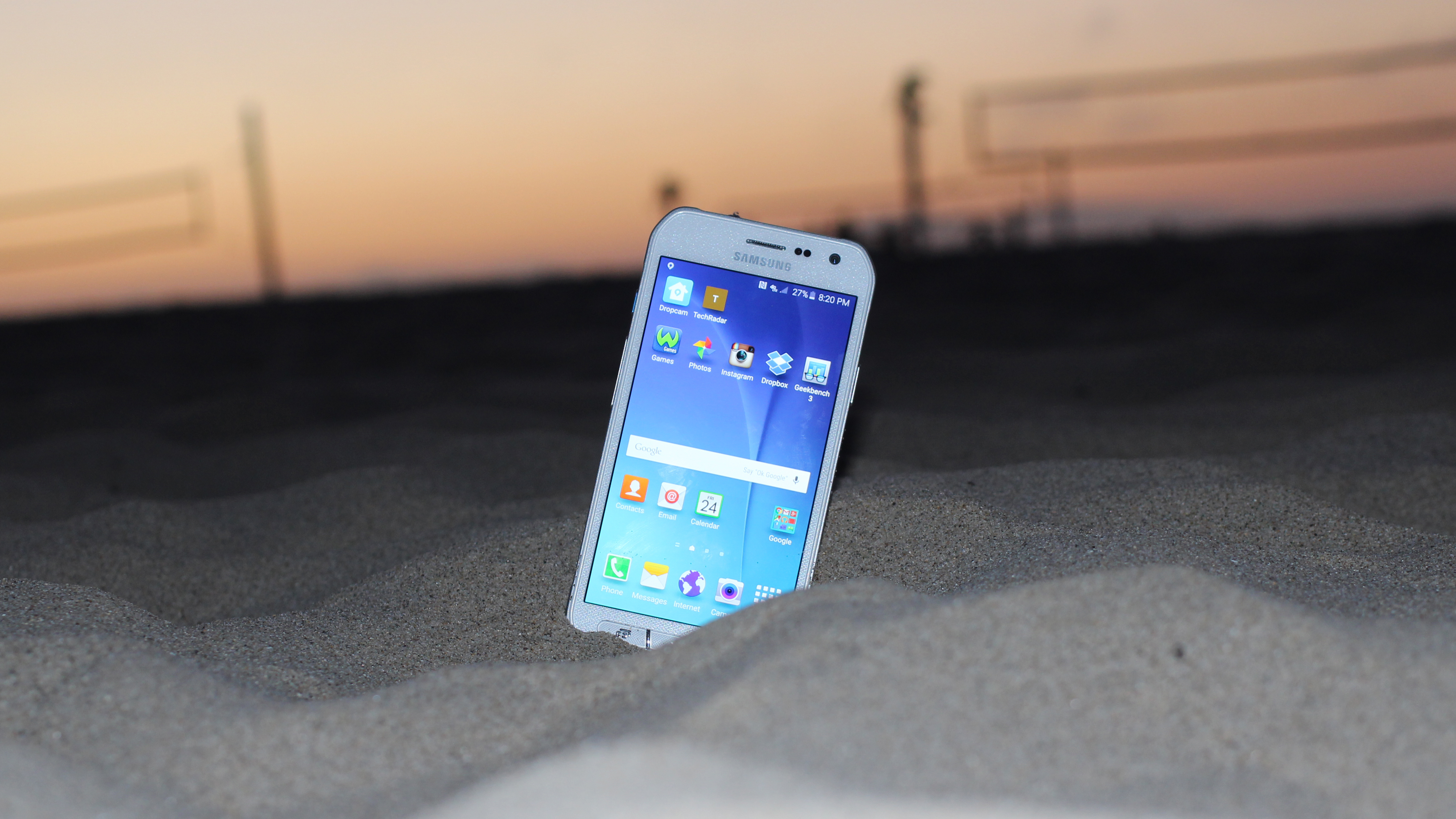Why you can trust TechRadar
Beneath the Samsung Galaxy S6 Active's airtight waterproof design are almost all of the same internal specs you'll find in the more porous Galaxy S6 and S6 Edge phones.
Samsung packs a lot of power into a 14-nanometer space, thanks to its Exynos 7420 system on a chip. This returning octa-core processor combines a 1.5GHz quad-core Cortex-A53 and 2.1GHz quad-core Cortex-A57. There's also the same Mali-T760 graphics chip onboard.
Translation? This phone for active folks doesn't slouch when it comes to speed or performance. It has a relatively high memory ceiling, too, with 3GB of RAM. I've tested a few phones with 4GB of RAM, and the Galaxy S6 Active still bests them in overall throughput.

Galaxy S6 Active benchmarking actually came out ahead of its non-waterproof counterpart, averaging a score of 5,244 in three consecutive Geekbench 3 tests. This is an improvement on the Samsung Galaxy S6, which ended up 4,849 while running the same Android 5.0.2 operating system. Both are snappy, fast-loading phones, and while the numbers are different, neither has shown signs of significant slowdown. It's a testament to Samsung's use of its Exynos processor and bailing on the Qualcomm Snapdragon 810 that has been troublesome for LG G Flex 2 and the HTC One M9.
There are only a few areas in which the Active doesn't go the distance. It's only available with 32GB of internal space, and system memory already takes up 7.11GB. That means users really have 24.89GB to play with. The Samsung Galaxy S6 and its curved Edge cousin offer 64GB and 128GB capacities to remedy this problem, but the Active does not.

You won't find a microSD card slot to supplement the internal space issue, contrary to rumors that it would arrive in the S6 Active. The scuttlebutt made sense, because the feature was unceremoniously axed from Samsung's Galaxy S6. The same goes for rumors of a swappable battery. Both are no shows, as is any sort of fingerprint sensor for biometric lock screen authentication or Android Pay.
While this is a 4G LTE phone, there are also fewer bands onboard this particular Galaxy S6 variant, limiting its connectivity to the AT&T's GSM network. Don't expect to be able to unlock this device and start using it with CDMA-based Verizon and Sprint cell towers. Half of the US is locked out of this rather fun device.
Sign up for breaking news, reviews, opinion, top tech deals, and more.
It's a pity that networks can't be switched on the fly, because the nano SIM card is uniquely easy to pop out. It can be yanked out with a fingernail, yet stays secure enough to be fully waterproof. I'd like to see this design in more phones instead of forcing me to bend back a paperclip every time I can to insert a new SIM card.
Current page: Specs and performance
Prev Page Introduction, design and display Next Page Android 5.0.2 and apps
